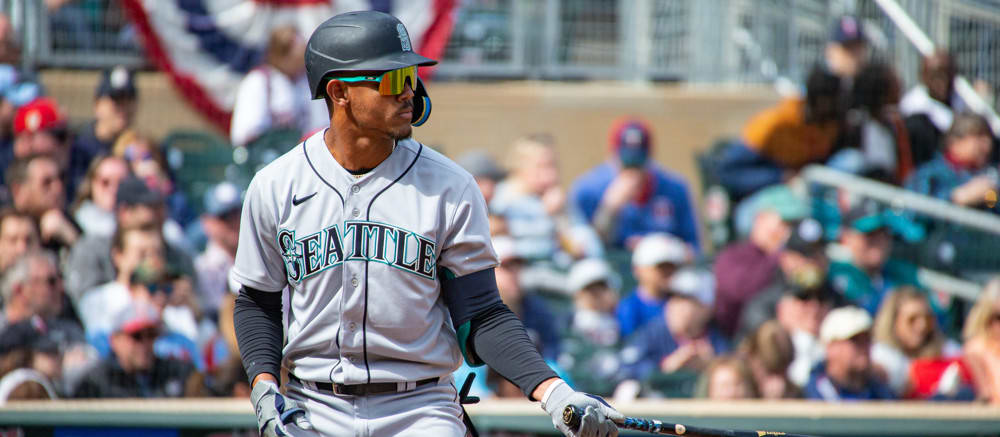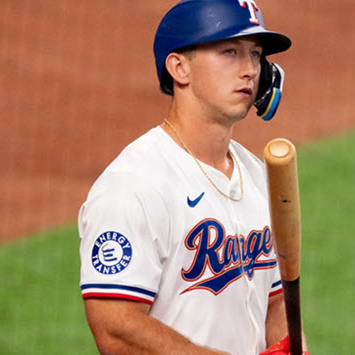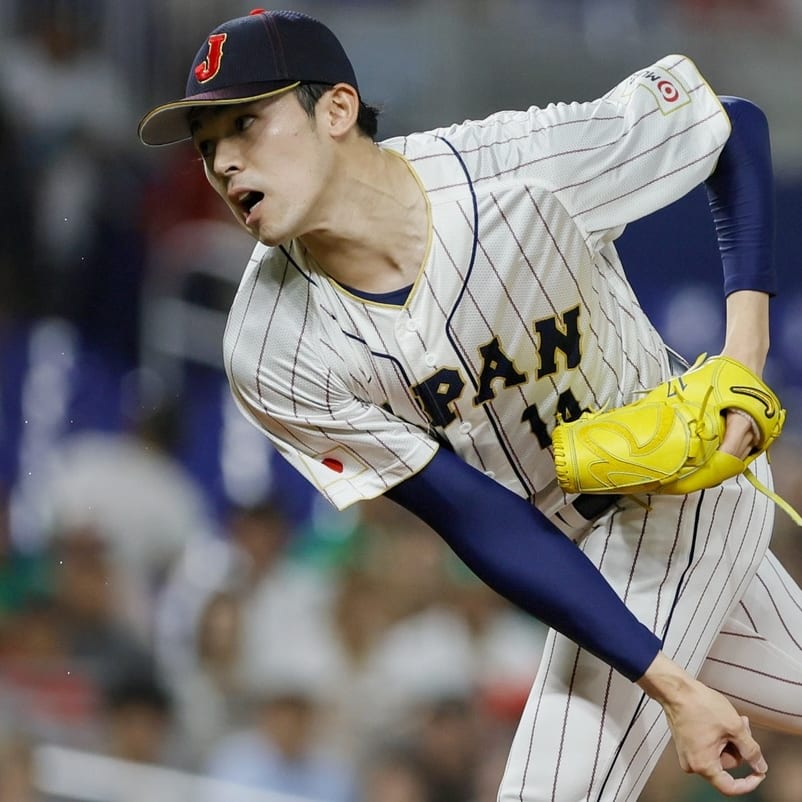On Aug. 22, I and 14 other degenerates took part in Rob DiPietro's second-annual seven-round draft for the next season while the current season is still six weeks from concluding. This is an NFBC (The National Fantasy Baseball Championship) $150 Draft Champions league, which means it is standard 5x5 roto and a 50-round draft and hold. We will draft the final 43 rounds in October.

We picked our draft slots based on the current standings of the 2023 league, so I had fourth preference since I was in fourth place at the time (now in third). I liked the idea of picking 15th, because then I'd have the first pick when we reconvene (I would have taken Corey Seager and Felix Bautista at 15/16), but ultimately I valued starting things off with an outfielder who I could count on for 30-plus steals and general five-category excellence. I knew Ronald Acuna and Shohei Ohtani would go 1-2, and I would have taken Corbin Carroll if Julio Rodriguez had been picked third. Based on the way things played out, I'm very glad I grabbed the fourth slot.
This is a loaded league, which makes the draft board and the strategies within even more relevant. Steve Weimer (last year's Main Event overall runner-up) mentioned before the draft that our 2023 league is the third strongest league of all the $150 Draft Champions leagues, despite the fact that we drafted the earliest. I thought Mike Mager (another accomplished NFBC player) made a
On Aug. 22, I and 14 other degenerates took part in Rob DiPietro's second-annual seven-round draft for the next season while the current season is still six weeks from concluding. This is an NFBC (The National Fantasy Baseball Championship) $150 Draft Champions league, which means it is standard 5x5 roto and a 50-round draft and hold. We will draft the final 43 rounds in October.

We picked our draft slots based on the current standings of the 2023 league, so I had fourth preference since I was in fourth place at the time (now in third). I liked the idea of picking 15th, because then I'd have the first pick when we reconvene (I would have taken Corey Seager and Felix Bautista at 15/16), but ultimately I valued starting things off with an outfielder who I could count on for 30-plus steals and general five-category excellence. I knew Ronald Acuna and Shohei Ohtani would go 1-2, and I would have taken Corbin Carroll if Julio Rodriguez had been picked third. Based on the way things played out, I'm very glad I grabbed the fourth slot.
This is a loaded league, which makes the draft board and the strategies within even more relevant. Steve Weimer (last year's Main Event overall runner-up) mentioned before the draft that our 2023 league is the third strongest league of all the $150 Draft Champions leagues, despite the fact that we drafted the earliest. I thought Mike Mager (another accomplished NFBC player) made a great point on our Zoom after taking Seager in the second round that batting average is an even scarcer commodity this year than stolen bases. He didn't say this, although it was probably implied, but I'd add that batting average from a player who is also a plus in HR, RBI and R is the scarcest type of position player, which makes Seager a first-round value to me.
My Approach
I didn't make a full draft board for prep like I did last year, but I knew who my general targets were going to be in each round after putting together last week's update to the dynasty rankings. More important than the specific players I wanted were my positional and categorical targets:
- Protect AVG
- At least one elite closer
- No more than one starting pitcher
- Preference to OF and C
The early rounds of a roto snake draft are for batting average first and foremost. There aren't many hitters who I'd project to hit .280 and flirt with 30/40, but Julio Rodriguez is one of them. Juan Soto wasn't really in my plans, but he also wasn't a hard fade. It's not ideal that he could steal single-digit bases over a full season, but he's still 24, and I think his floor is really high. If Soto is my biggest batting average liability through seven rounds, that's not bad.
As for starting pitching, if we were doing this draft in mid-March of 2024, I'd have been more open to the idea of grabbing two starters in the first seven rounds, but there's still six weeks of the 2023 regular season and the 2023 postseason when pitchers can suffer a major injury before we start up this draft again, so I'd rather have that info (are they healthy?) before drafting most of my starting pitchers. I am glad I got one high-strikeout SP in Freddy Peralta though, because in this league I'd have really struggled to make up the ground in strikeouts if I had waited to take my first SP until after guys like Joe Musgrove and Zach Eflin were already off the board. I absolutely love Jason DuPonte's team, as Luis Castillo, Zac Gallen and Tyler Glasnow will be three of my top SP1 targets next year and he got all three, but that type of build wasn't in my plans.
I know it's not for everyone, but I'm extremely comfortable taking two early closers and/or two early catchers, especially in draft-and-hold leagues. I've done that the past two years in most of my NFBC leagues and they've been my two most successful years playing high-stakes fantasy baseball. Not only am I getting two of the best closers and two of the best catchers, but I'm saving myself 3-4 picks over the final 43 rounds that would have been used on closer specs, and instead of leaving the draft with 3-4 catchers like most managers, I'll be leaving this draft with 2-3 catchers, likely two. Those surplus picks will go towards starting pitchers, prospects, etc... One of the things I'm worst at is finding saves in the middle rounds of a draft-and-hold, so I'm planning around that. On the flip side, my biggest strength is probably finding good mid-round starting pitching. The main point here is to know your strengths and weaknesses (we all have them) and plan accordingly.
Sometimes I'll look at one of my rosters and question how the team is so competitive, and without fail, those teams have two great catchers. It really makes a difference in AVG, R, RBI, assuming you did OK filling out the rest of your roster. With Will Smith and Sean Murphy, an added bonus is having a piece of two of the best lineups in the game. I love guys like Yainer Diaz, Ryan Jeffers and Bo Naylor as mid-round catcher targets for next year (Diaz would have even been a fine pick in these first seven rounds), but there's a sense of comfort in knowing I don't have to sweat out getting those mid-round targets.
I have eight draft-and-hold teams this year, and I'm in first place in two leagues, second place in three leagues, third place in two leagues, and 14th place in one league. Even on some of my best teams, outfield is the spot where I'm weakest, and I'm even taking a complete zero in one outfield spot on one of my first-place teams. On the flip side, I've been benching corner infielders of the caliber of Jake Burger and J.D. Davis in some 15-team draft-and-hold leagues, so favoring outfield over infield was a conscious choice based on how 2023 has gone for me.
Let me know in the comments what you think of these first seven rounds. Who has the best team so far? What did I mess up? And I recommend supporting Rob's Pull Hitter Patreon, where he'll be releasing the 7-round draft as a podcast this week.










